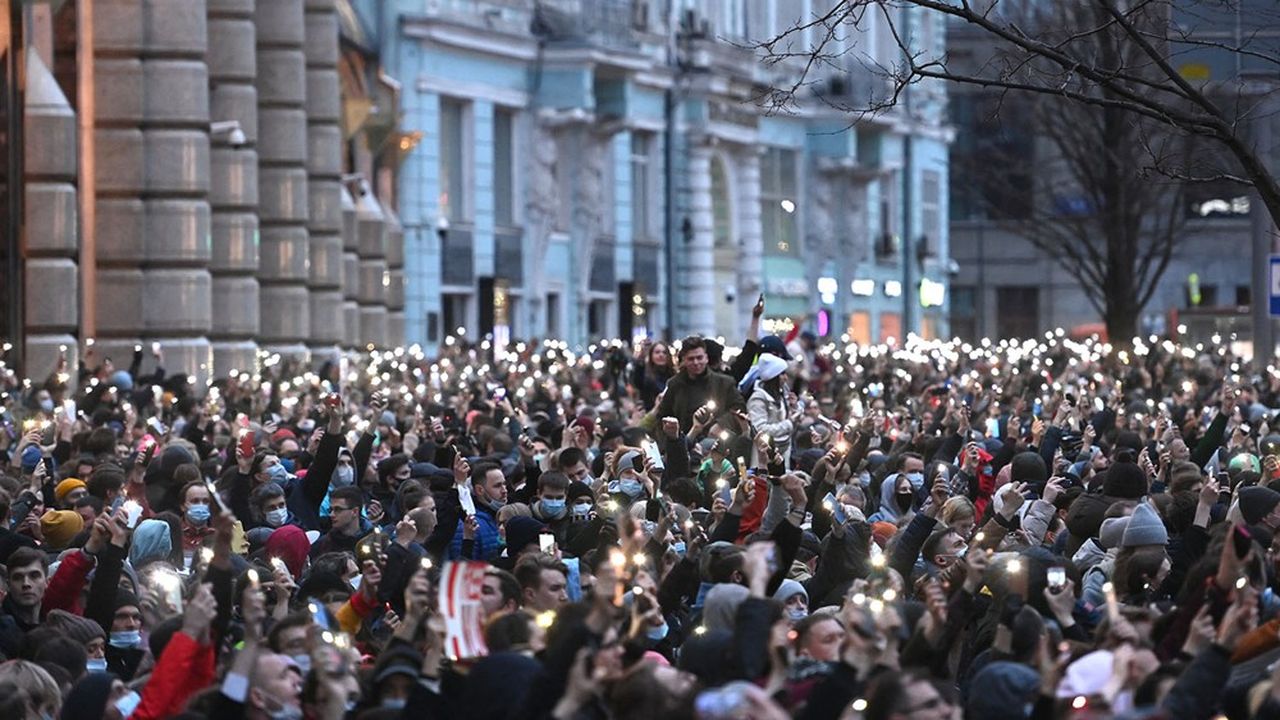Posted on Apr 22, 2021, 1:20 PMUpdated Apr 22, 2021, 2:02 PM
Paris, like Brussels on Monday, warned the Kremlin about the health of the number one Russian opponent, Alexeï Navalny. French Foreign Minister Jean-Yves Le Drian estimated Thursday morning that Russian President Vladimir Poutine would be considered ” responsible Of the possible death of the famous anti-corruption blogger, who has been serving thirty months in prison since February for a fraud case that he considers politically motivated. The head of European diplomacy, Josep Borrel, said on Monday that the Russian authorities were “ health officials of Alexeï Navalny ».
Estonia is considering “ seriously To grant asylum to the Russian opposition leader in case he is released and deported from Russia, Estonian Foreign Minister Eva-Maria Liimets said on Tuesday.
In the event of the death of Alexeï Navalny, on hunger strike for three weeks to demand access to trusted doctors (he survived a poisoning last August attributed by the West to the Russian secret services), Brussels would impose new sanctions against Moscow. Washington also threatened Moscow with reprisals.
A triple drift
« We are in a form of triple drift with Russia right now », Declared the head of the French diplomacy. ” There is an internal authoritarian drift, the relentlessness on Navalny, it is unbearable. […] And then there is an external drift of intimidation, of provocation […] in Ukraine and […] a drift of interference, because Russia is trying to undermine our democratic operating methods ».
« I do not believe in Russia’s willingness to take military action against Ukraine. I do not believe it, but the fact of massing so many troops at the gates of Ukraine […] presents risks of accident, incident and at that time of conflictuality “, he added. According to European sources, Russia has massed 150,000 troops on the Ukrainian border, an unprecedented level since the outbreak in 2014 of a separatist conflict in this country that Moscow considers at the heart of its sphere of influence.
The day before, Vladimir Putin, in a speech before both Houses of Parliament, warned Westerners that they should refrain from crossing ” red lines “, Without further details, at the risk of provoking a reaction” fast, brutal and asymmetrical “. These tensions over Ukraine, the Navalny affair, accusations of espionage, electoral interference and cyber attacks have already pushed Western countries to take sanctions against Russian figures in recent weeks. The Czech Republic, for its part, expelled many Russian diplomats, in retaliation for the explosion in 2014 of an ammunition depot on its soil that an investigation has just attributed to the Russian secret services. NATO expressed on Thursday its full solidarity with Prague in the face of the actions “ destabilizing »From Moscow.
Tensions between Washington and Moscow
Meanwhile, US Ambassador to Russia John Sullivan announced Tuesday that he will return to the United States “this week for consultations” in accordance with what Moscow “recommended” to him last week. Russian Ambassador to Washington Anatoly Antonov was recalled to Moscow on March 17 for consultations after President Joe Biden described Vladimir Putin as a “killer”.
The United States last Thursday adopted additional sanctions targeting Russia, which include the expulsion of ten Russian diplomats and restrictions on the purchase of Russian debt for American banks. Russia responded by expelling ten US diplomats, threatening Washington-funded funds and NGOs, and inadmissibility of several members of Joe Biden’s government.
–


:quality(80)/cdn-kiosk-api.telegraaf.nl/794284d8-a2ed-11eb-a8eb-0218eaf05005.jpg)